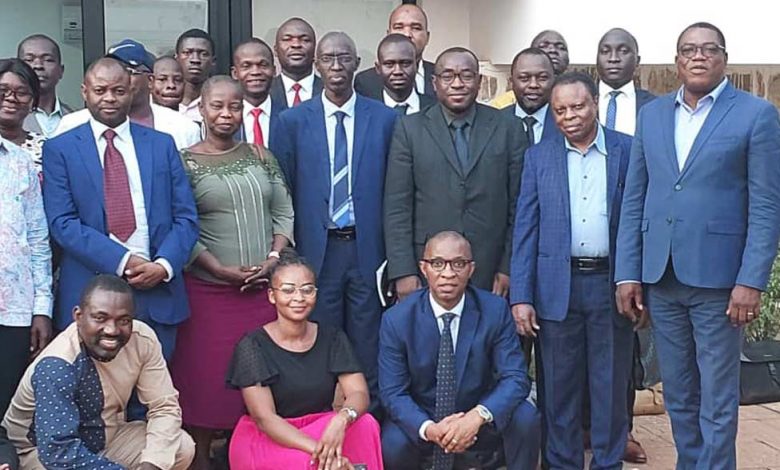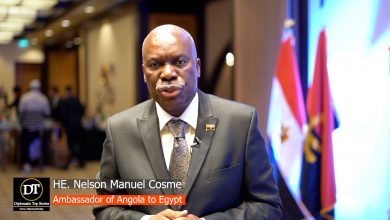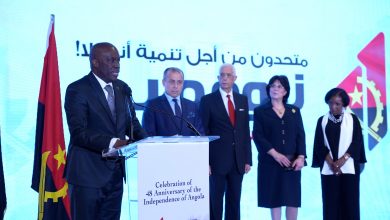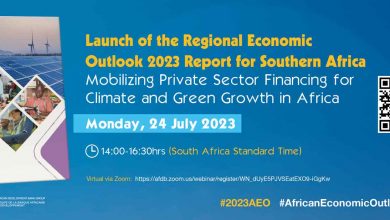Central African Republic: Government officials receive training in macroeconomic modeling and forecasting | African Development Bank

Diplomat.Today
The African Development Bank
2023-02-03 00:00:00
——————————————-
Effective economic policy requires good quality data, robust models and the use of modern and adequate statistical software. Such a policy can only be made on the basis of the use of appropriate macroeconomic and forecasting models and well-tested analytical hypotheses, said Mamady Souare, the Country Manager of the African Development Bank in the Central African Republic, recently at a training workshop.
“As we experience increasingly frequent and larger shocks in our economies – both external and internal – there is an increasing need for good macroeconomic models that account for such disruptions to enable relevant policy responses,” he said.
Certified experts in macroeconomic policy and modeling from the African Development Bank delivered the training which took place December 15-20, 2022 in Bangui, Central African Republic.
The workshop was organized by the African Development Institute (ADI) of the African Development Bank. It aimed at strengthening the capacity of government officials responsible for macroeconomic policy in macroeconomic modelling, forecasting and policy analysis.
Professor Kevin Urama, Acting Chief Economist and Vice President of Economic Governance and Knowledge Management at the African Development Bank, described the training as an essential step towards developing skills for developing robust and reliable macroeconomic models and analytical tools for improved economic planning, analysis, and effective policy implementation.
“The aim of the support is to strengthen the capacity of the Ministry of Economic Planning and International Cooperation for macroeconomic modeling and forecasting. It also improves planning, economic analysis and effective macroeconomic monitoring of the coaching staff,” said Urama.
Participants in the training workshop are convinced that the knowledge gained will translate into better economic policies that will promote sustainable growth and inclusive development in the country.
Enock Oueama-Guengaï, an expert in charge of the Department of Sector Policy Control of the CAR Ministry of Finance and Budget, said the training enabled him and his colleagues to acquire modeling techniques useful in conducting economic analysis.
“The training was very important for our work. In particular, we have acquired modeling techniques to perform relevant economic analysis for decision makers. The training also enabled us to improve our knowledge of Eviews, an important tool in econometrics,” says Oueama-Guengaï.
The exercise enabled the team to master the basic elements and mathematical tools, the foundation of economic theory, the use of statistics in the verification of economic theories, and the use of analytical tools.
“The training was very helpful to me because it helped to refresh the basics in econometrics that I learned at university,” said Iva Guezewane, the director of Planning and Social Development at the Ministry of Economics, Planning and International Cooperation of the CAR, .
“It also allowed me to become familiar with the technical terms, including those used by the International Monetary Fund when they come for missions in the CAR,” she added.
Guezewane said she was confident that “the acquired skills, especially in Eview’s Econometric modeling software in statistical tests and estimations, will help them to validate inferences and perform better analysis of the CAR economy.” EViews is a modern econometric, statistical and forecasting package that offers powerful analytical tools within a flexible and easy-to-use interface.
Félix Moloua, the CAR’s Prime Minister and Minister of Economic Planning and International Cooperation, said his government welcomed the bank’s support to strengthen the capacity of experts in using econometric tools for better macroeconomic and budgetary frameworks .
He explained that other beneficiaries of the aid include the Bank of Central African States and the Central African Institute of Statistics, Economic and Social Studies.
“If the African Development Bank continues in this direction, perhaps other partners will join in to support efforts to scale up macroeconomic policy management capacity in the CAR,” Moloua said.
——————————————-



